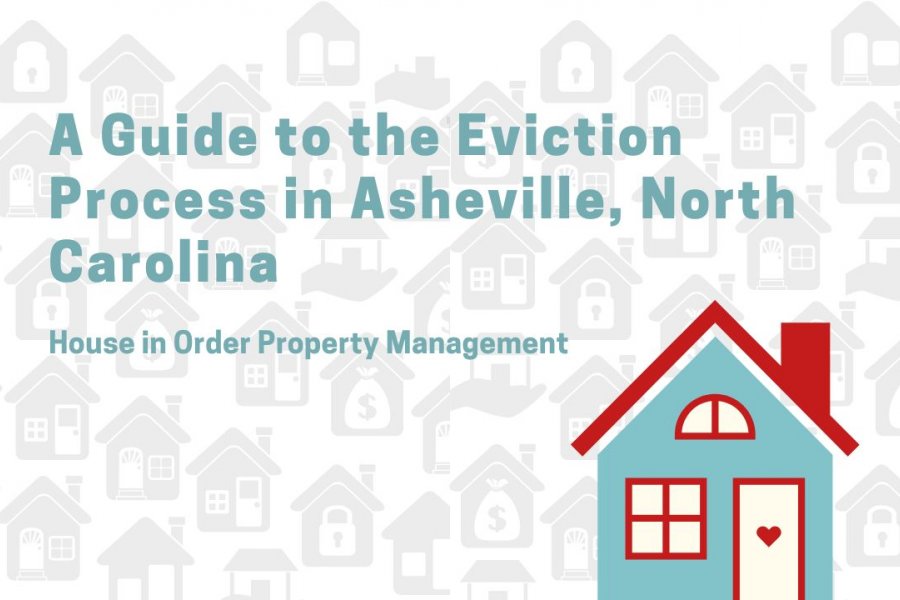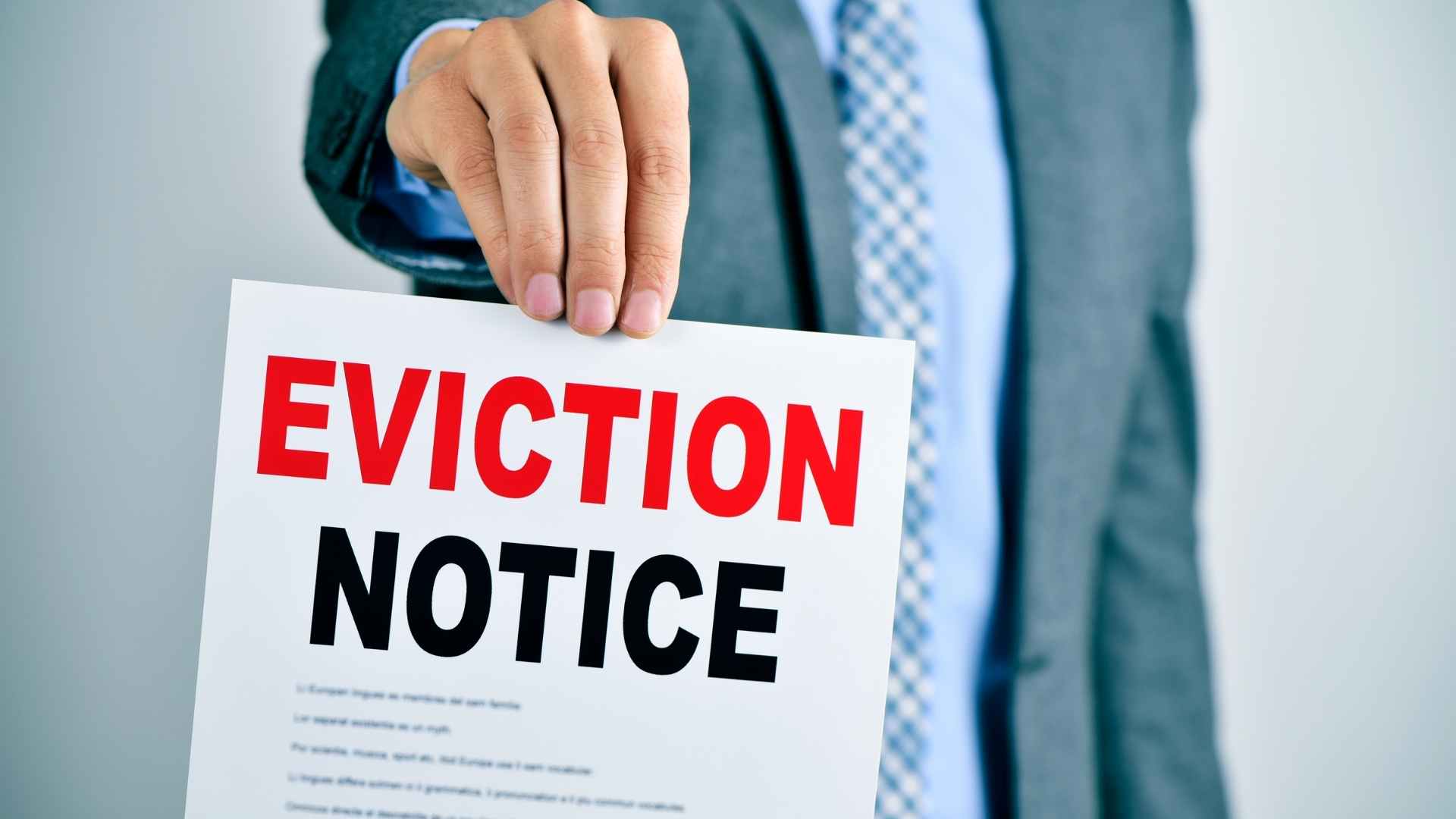
As North Carolina landlords, it’s essential to understand the North Carolina eviction process and the laws surrounding tenant evictions. While no landlord wants to go through the eviction process in NC, there are times when it becomes necessary to remove tenants from your rental property. Being informed about the legal steps, including proper notices and court costs, can help ensure the process is handled correctly and efficiently.
Attempting to evict a tenant without following the legal procedures defined by North Carolina’s landlord-tenant laws could result in tangible legal consequences. That’s why we have provided our comprehensive guide to North Carolina’s eviction process.
What is the Eviction Process in North Carolina
The eviction process can be lengthy, often taking North Carolina landlords around 1 to 3 months to complete, depending on the reason for the removal and whether the case is handled in small claims court or district court. Understanding the difference between these two courts can help clarify the process.
Small claims court is typically the first step for eviction cases. It’s designed for simpler cases involving lower monetary claims, making it faster and less formal. Most eviction cases in North Carolina start at small claims court, as landlords seek possession of their rental property.
If a tenant appeals the small claims court’s decision, the case moves to district court. A district court is more formal and can involve additional legal procedures, which often extend the eviction timeline.
The transition between small claims court and district court is a key factor in how long the eviction process may take. Keep reading to learn more about navigating these steps effectively in North Carolina.
Notices and Legal Cause
The first thing to know when it comes to the North Carolina eviction process is the reasons that a landlord may legally evict a tenant from a rental property. A landlord may only begin the eviction process in North Carolina if there is a just cause.

The following are the valid reasons why a landlord may begin the eviction process in North Carolina:
- The tenant fails to pay rent on time.
- The tenant stays on the property after the lease agreement has ended.
- The tenant violates the terms of the lease agreement.
- The tenant participates in illegal activity on the rental.
Regardless of the reason for removal, a landlord cannot just kick their tenants out of the dwelling. According to landlord-tenant laws in North Carolina, every tenant must be provided with proper written notice before eviction. The type of written notice varies depending on the reason.
These are the types of written notices that follow North Carolina law:
- Nonpayment of Rent: If a tenant is unable or fails to pay rent on time, then the landlord may give them a 10 days’ rent demand notice to either pay rent in full or be evicted from the dwelling.
- No Lease / End of Lease: If the tenant does not have a lease or rental agreement or the lease term has ended, then the landlord may give the tenant 7 days' notice for eviction.
- Lease Violations and Illegal Activity: If a tenant commits a lease violation, such as damaging the rental home or engaging in illegal activity on the property, the landlord is not required to provide prior notification. In such cases, the landlord may immediately proceed with filing an eviction lawsuit to evict tenants, as outlined in the terms of the lease or rental agreement.
Once landlords have a legal reason and have identified the type of notice to use. The next step in the eviction process in North Carolina is to serve the tenants with the eviction notice.

This can be done in accordance with the state's eviction laws in any of the following ways:
- Delivering the proper eviction notice to the tenants in person.
- Leaving a copy of the notices with someone of “suitable age” who lives with the tenant in question.
- Posting a copy of the notice in a visible place of the rental home like the front door.
The Court Hearing
The next step in the eviction proceedings is for the landlord to file a complaint with the court. Then, the summons and complaint will be served to the tenant by the sheriff's office. This is when the court date for the eviction hearing will be scheduled.
Both the landlord and the tenant are required to be present at the eviction hearing. If the tenant fails to be present for the court process, then the court may rule in favor of the landlord by default, and the tenant will have to move out of the rental home.
If the court rules in favor of the landlord at the eviction hearing, then a writ of possession will be issued and the process will move to the next step.
The Writ of Possession
This refers to the final notice that tenants may receive to vacate the rental property and remove their belongings before the sheriff returns to the dwelling and removes them.

If the court has ruled in favor of the landlord, then the writ of possession may be issued within 10 days of the ruling. This gives a tenant enough time to file an appeal should they wish to do so.
Bottom Line
The legal process of eviction must be properly followed. Now that you’ve read our comprehensive guide on the process, you will be prepared should this unfortunate situation ever arise. As a landlord, you should also remain informed about all regulations pertaining to handling or breaking a lease in North Carolina, security deposit laws, and rent increase policies.
Have any more questions about evictions, landlord-tenant laws, or any other aspect of your rental? We would love to answer them! Contact our knowledgeable team here at House in Order Property Management today to receive only the highest quality property management services.
Our experience makes us uniquely qualified to provide you with any advice you may need to help your rental home succeed. Whether you need more information on navigating landlord-tenant laws, or would like someone to manage your rental properties on your behalf, we are here for you!
Disclaimer: This blog should not be used as a substitute for legal advice from a licensed attorney in your state. Laws change, and this post might not be updated at the time of your reading. Please contact us for any questions you have in regards to this content or any other aspect of your rental management needs.
